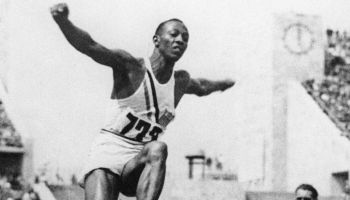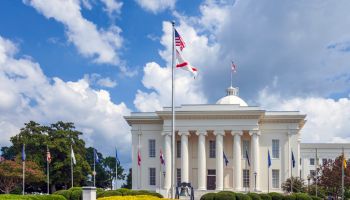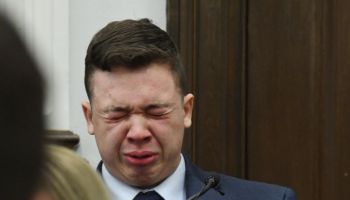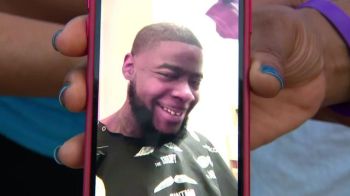Nigerian novelist Chimamanda Adichie (pictured) told an audience at TED, a conference of “ideas worth sharing” in technology, entertainment, and design made popular by its free video and discussion site, that knowing only a single story of a person or a place is destructive like the one-noted image we have of Africa – hunger, poverty, war – when it is in fact a continent rich with culture, resources, and ingenuity:
SEE ALSO: How Ron Paul Got A Free Pass
This single story creates stereotypes,” she said, “and the problem with stereotypes is not that they are untrue, but that they are incomplete … Of course, Africa is a continent full of catastrophes: There are immense ones, such as the horrific rapes in Congo and depressing ones, such as the fact that 5,000 people apply for one job vacancy in Nigeria. But there are other stories that are not about catastrophe, and it is very important, it is just as important, to talk about them.
Her success writing books has led her to start a non-profit called “Farafina Trust” with the vision to build and refurbish libraries and organize reading and writing workshops for “people who are eager to tell our many stories.”
Check out her impassioned presentation as well as 10 other moments that highlight the Motherland:
1. Joseph Lekuton, a member of the Kenyan parliament, shares a parable to inspire:
I’m trying to develop homegrown solutions to our issues,” he said, “because we realize that people from outside can come and help us, but if we don’t help ourselves, there’s nothing we can do.
2. William Kamkwamba, an inventor from Malawi, explains how he built an electrical system including a power-generating windmill from scrap materials and a library book, when he was just 14 years old:
Because of the hunger, I was forced to drop out of school … It was the future I couldn’t accept.
3 and 4. Rokia Traore, an award-winning Malian singer/songwriter/musician, blends operatic vocals with an acoustic guitar and an n’goni in live renditions of the songs “Kounandi” and “M’Bifo.”
5. Spencer Wells, a geneticist, explains that all humans share common DNA coding that traces back to African ancestors:
Every piece of DNA we look at has greater diversity within Africa than outside of Africa.
6. Emily Oster, a University of Chicago economist, offers a different perspective on AIDS in Africa that involves looking at the overall issue of short-life expectancy:
“How much you want to invest is going to depend on how much longer you expect to live in the future, even if you don’t make those investments. AIDS is the same kind of thing. It’s costly to avoid AIDS. People really like to have sex … . But life expectancy in Africa, even without AIDS, is really, really low: 40 or 50 years in a lot of places.
7. Patrick Awuah, co-founder of the Ghanaian liberal arts college Asheshi University, explains how Africa has reached a critical point that can be changed in a single generation with “inspired leadership” in all facets of life:
When I speak of leadership, I’m not talking about just political leaders. We’ve heard a lot about that. I’m talking about the elite. Those who’ve been trained, whose job it is to be the guardians of their society. The lawyers, the judges, the policemen, the doctors, the engineers, the civil servants — those are the leaders.
8. Andrew Mwenda, a journalist, says that the world needs to stop looking at Africa as a charity case:
Africa has 53 nations. We have civil wars only in six countries, which means that the media are covering only six countries.
9. Franco Sacchi, a Zambia-born filmmaker, explains Nigeria’s Nollywood:
“Try to imagine 40, 50 films wrapped, distributed, every week in the streets of Lagos, Nigeria, and West Africa. Some estimates put the value of this industry at $250 million. It has created thousands, if not tens of thousands of jobs. And it’s expanding. But keep in mind that this was a grassroots movement. This is something that happened without foreign investment, without government aid, and actually, it happened against all odds, in one of the most difficult moments in Nigerian economy.
10. Ngozi Okonjo-Iweala, the first female finance minister in Nigeria, shares a story of successful economic reform in Nigeria and describes how to best help the continent as a whole:
The best way to help Africans today is to help them to stand on their own feet, and the best way to do that is by helping create jobs. There’s no issue with fighting malaria and putting money in that and saving children’s lives. That’s not what I’m saying. That is fine. But imagine the impact on a family if the parents can be employed and make sure that their children go to school, that they can buy the drugs to fight the disease themselves. If we can invest in places where you yourselves make money whilst creating jobs and helping people stand on their own feet, isn’t that a wonderful opportunity? Isn’t that the way to go?
SEE ALSO:















